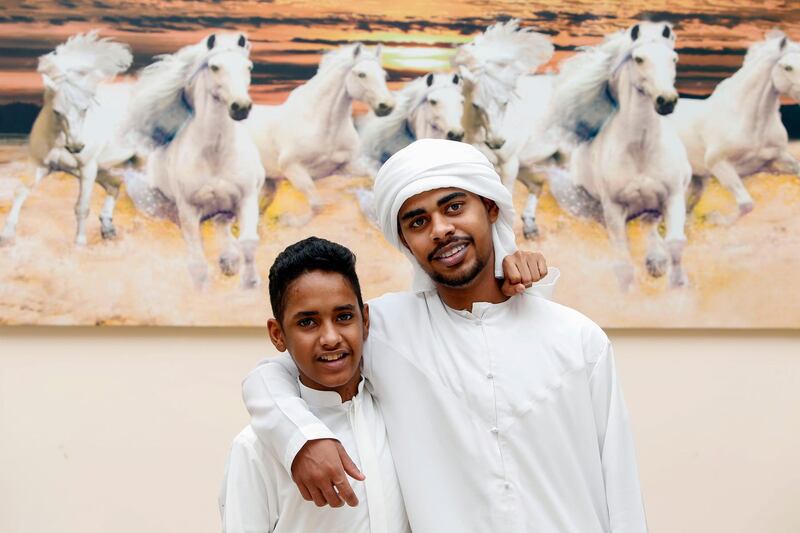A young Emirati who underwent a heart transplant to save his life is critically ill after his body rejected the organ.
Mohammed Al Yahyaee, 17, is in intensive care at a hospital in India where his father Sultan is desperately hoping another match can be found.
As The National reported last summer, both Mohammed and Hamad, 18, survived heart transplants having been diagnosed with a severe form of familial cardiomyopathy, a chronic heart muscle disease that prevents the organ from pumping enough blood around their bodies.
In the months that followed, after they returned to the UAE, however, Mohammed began feeling sick.
"He started getting fevers and his body was bloated," said their father Sultan, 41, speaking to The National from a hospital in India.
Without sufficient blood being pumped to the organs and limbs, the body begins to shut down. The brothers suffered from liver shock caused by a shortage in blood and oxygen previously.
Since the summer, Mohammed has been taken to several hospitals in Abu Dhabi, where he remained for several months without improvement.
At one of those hospitals, Cleveland Clinic Abu Dhabi, Sultan said doctors confirmed that Mohammed's body had rejected the heart and he needed another one.
Since then Mohammed’s transplanted heart has stopped twice.
He was immediately flown to India, which has one of the largest pools of donors in the world, since a heart was not available in the UAE.
_____________
Read more:
Abu Dhabi Hospital first to offer heart, liver and lung transplants in UAE
UAE's largest organ unit receiving calls 'every day' from prospective donors
Everything you need to know about the UAE's organ donor programme
_____________
Mohammed is currently in Fortis Hospital, attached to life support machine.
“We are here again waiting for a donor. Mohammed can only remain on these machines for two months before they cause brain damage and internal bleeding. It has now been a month and a week - we can't do anything but pray and wait," he said.
Sultan said that if a donor was available in the UAE, he would fly back immediately, though the country's transplant system is only just being established.
“I would rather be in the UAE but I have no option. I would come back this instant if there is a heart for my son," said Sultan, who is from Al Ain.
Sultan said he has been sent to a number of different hospitals who were unable to help.
"They told me that they couldn’t do another transplant and that I should go to London for an artificial heart for Mohammed," he said.
Now, he worries how long it will take for a donor to become available.
In India, citizens have priority over foreign patients for organ transplants.
Only when there is no domestic recipient can the organ pass to an international recipient – and that is based on a waiting list, patient seniority and severity of the disease.
As The National reported in July, cardiomyopathy runs in the Al Yahyaee family, including all of his children.
Sultan has had his other children tested.
“We were told all eight carry the gene for the cardiomyopathy. All six of the girls will eventually require a transplant, but its too soon to tell for the two boys,” he said last year.
Saif is six, and Majid, named after his elder brother, who passed away, is three.
Despite the UAE's transplant system being in its infancy, having been fully legalised last year, the UAE's largest transplant centre last month said it is receiving calls "every day" from prospective donors, providing hope to hundreds of patients on a waiting list.
Sheikh Khalifa Medical City (SKMC) doctors said they were encouraged by the number of members of the public that have come forward to volunteer to give their organs in the event of their death.






